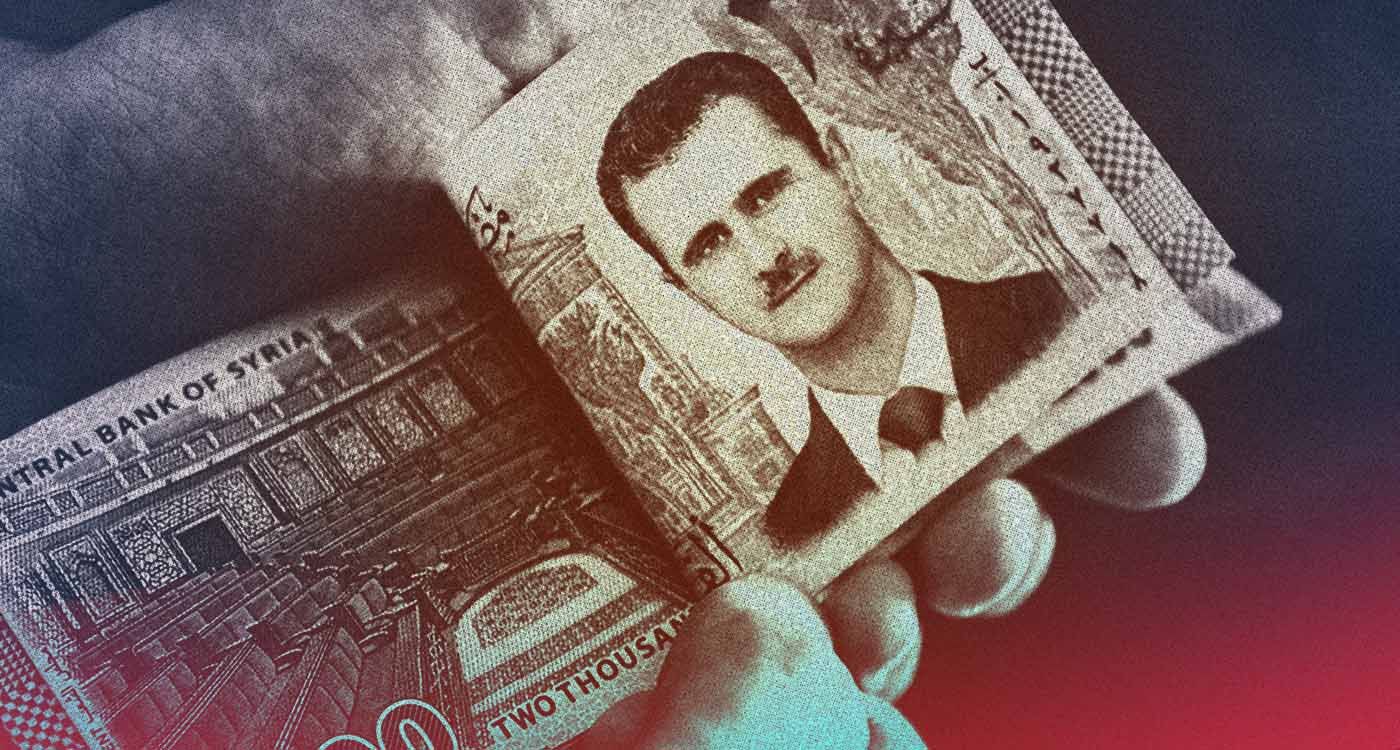
Following the collapse of Bashar al-Assad's regime, Syria is left with a crumbling economy, shaped by decades of state control and average wages barely surpassing $40 per month. The country’s economic prospects now depend largely on the removal of American and Western sanctions, as well as financial assistance from the international community. However, these sanctions led to negative side effects, including the emergence of a black market dominated by the ousted regime.
In the early hours of the post-Assad era, Syria's Minister of Commerce, in an interview with Al-Hadath TV, stressed that the supply of basic necessities depends on the return of government employees to their positions, particularly in Damascus, as observed in Hama. However, he refrained from predicting how long the population could sustain itself with the available resources. When asked about the future of the national currency, he stated that "the replacement of the Syrian pound with a new currency depends on a political decision." For now, transactions are carried out in various currencies, including the Syrian pound, the Turkish lira and the dollar.
In this context, the minister stressed the need to form a technocratic government capable of overseeing this delicate transition, while also acknowledging Syria's "technological lag" compared to its Arab neighbors. Meanwhile, the Syrian Minister of Telecommunications stated on Al-Arabiya that telecommunication services are operating normally across the country, with internet access restored in the city of Hama. He also disclosed having had discussions with Abu Mohammad al-Joulani, commander of the Syrian rebel forces, following a similar statement made earlier.
Syrian Pound: 42% Drop in Value
In terms of currency, the Syrian pound underwent an unprecedented collapse after images from Damascus confirmed the fall of President Bashar al-Assad’s regime. The value of the Syrian pound plummeted against the US dollar, with a 42% decline in transactions in Damascus, hitting a historic low. As of now, one dollar is equivalent to 22,000 Syrian pounds, according to Syria Pound Today, a website focused on exchange rates.
In Aleppo, the situation is even more dire, with one dollar now worth 36,000 Syrian pounds, marking a 64% devaluation.
This steep decline highlights the deepening economic and political crisis in the country and will significantly affect the daily lives of citizens. The task of rebuilding Syria, both economically and institutionally, is daunting but crucial to providing the population with the long-awaited stability.
Public Assets
Calls to preserve public assets are increasing. In a statement, Abu Mohammad al-Joulani urged his fighters not to interfere with public institutions in Damascus, which remain under the control of the former prime minister until an "official handover." The statement read, "All military forces in the city of Damascus are strictly prohibited from interfering with public institutions, which will remain under the control of the former prime minister until the official transfer of power."




Comments